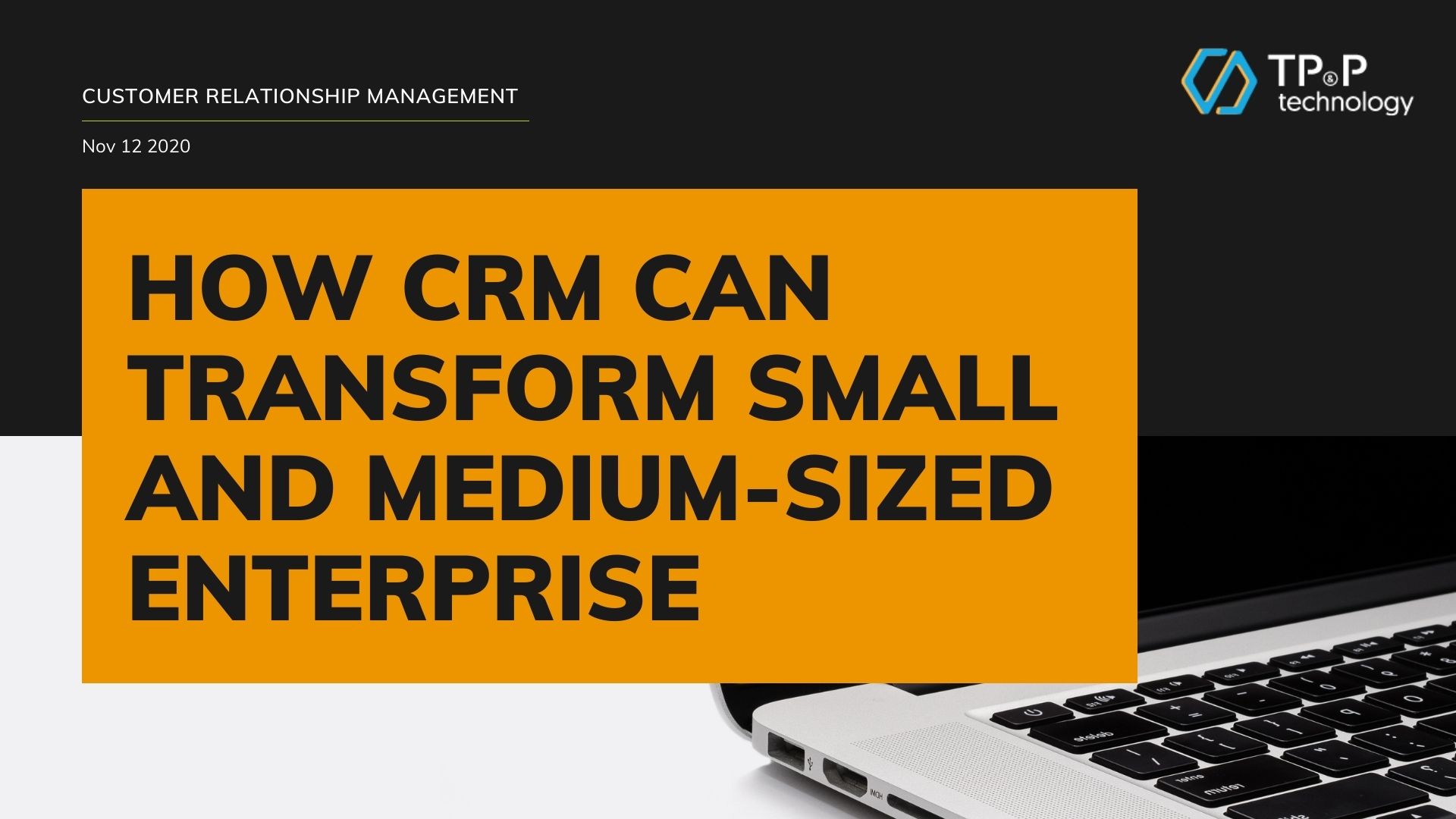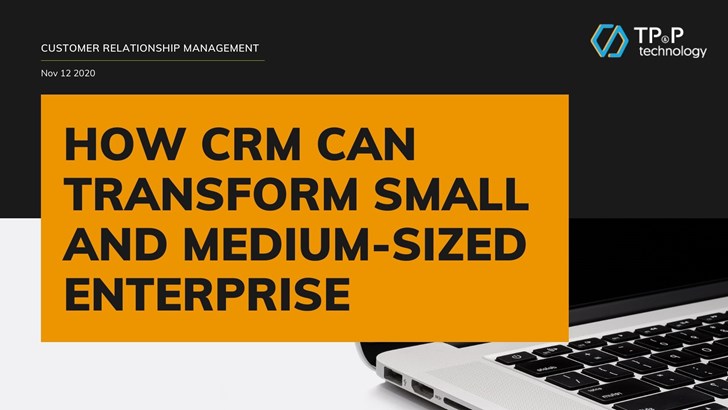
How CRM Can Transform Small And Medium-Sized Enterprise
Any business owner knows the importance of being efficient in customer service. Today we often turn to technology to get the help and support we need. For small and medium-sized businesses, a customer relationship management (CRM) software system or platform is one of many solutions that bring benefits to the company. Not only it helps in simplifying the work-life but also holds the capability to transform the entire enterprise.
In general, CRM is a database of customers, including personal details of customers, lead, or prospective customers’ information like names, email, ages, and titles, sources of leads, all interactions made with the customer, all purchase histories, their levels of engagement and other information like customers’ kids’ names, hobbies, dream travel destinations, etc. These data are extremely important for the sales and marketing team so that they can deliver optimized customer services.
However, there are still many SMEs still use manual spreadsheets like Excel or old-fashioned filling systems to record all information. These methods were useful for a while, but as we’re stepping into the Big Data era, these methods offer little to no lasting value in terms of scalability, shareability, and customer insights.
With CRM, it can help your business understand the needs and concerns of customers, and be more precise and considerate when making decisions to nurture those relationships. Some core functions of CRM include managing customer data, tracking leads, and responding to customer requests for feedback.
As we delve into a CRM solution, we’ll find that there are more powerful features that can give your business the competitive advantage it needs and push it to grow. Despite the company size, if you’re not using any CRM system to optimize your business, you’re likely wasting time and money.
Let’s look at how CRM software systems can significantly improve your business.
Improving customer service
As mentioned above, the way one company treats its customers defines what its brand stands for. Today customers expect to be received personalized, one-on-one services, especially those who reach out to SME to solve their problems. SMEs’ customers often know the owner personally, therefore, it’s easy to understand why they expect a service tailored just for their needs.
One way to improve the customer experience is via CRM. CRM has a central ticketing system operating as a center where all cases are registered and accessible. All authorized users and managers can access cases, view the problem-solving progress, communication, etc. As the CRM helpdesk ticketing system allows the internal team to access all cases and prioritize which cases are critical so that managers can assign to team members with compatible skills. The system also ensures that all customer issues are resolved promptly with recorded notes.
Track your group's effectiveness
Since SMEs operate with fewer employees, it is essential to know how the team and individuals are working and if they are working effectively and efficiently. Most CRM systems have built-in field service management features. This allows businesses to know what customers their sales representatives have visited with real-time tracking and check-in. The representative can also access field service management on their mobile devices and enter information about customer interactions, making sure that all staff is productive.
Inventory management
One of the biggest challenges for any product-oriented business faces is inventory management. All businesses, especially SMEs that have inventory needs often lack internal resources to manage purchase orders, customer product orders, and monitor all inventory in multiple warehouses. These businesses can utilize CRM to do all of these activities.
With the real-time tracking function, all inventory management stakeholders know where products are at all times. Plus, all associated billing, invoices, and accounting are stored in one place and connected to customers’ accounts. Businesses who can respond to product requests have more advantages to increase customer loyalty.
Make better decisions
As we’re living in a data-driven world, the business dashboard has attracted a lot of attention. Many factors affect the overall performance of one business. The business dashboard which is developed in CRM presents these factors in data visualization form. Because they’re designed to provide users with information that has been extrapolated from data collected from all sources and are displayed in the form of graphs, charts, maps, etc, they’re easy to read and understand. The dashboard is also available and interactive on mobile devices.
The whole picture after implementing CRM
A few CRM systems include the built-in ERP (Enterprise Resource Planning) software, and because ERP is such a powerful tool when combined with CRM, they can integrate all departments and functions of the company in one single system while still fulfilling the needs of each department.
This is important as it can facilitate communication between all teams, reduce redundancy, and help predict the domino effect of departments’ decisions, as well as provide a 360-degree view of the whole company.
Even though CRM solutions can bring dozens of benefits, its main overall purpose is to increase the company’s revenue and reduce costs associated with sales. If implementing it correctly, CRM can be extremely useful in increasing all team productivity and processes across all departments.
With the right guidance, CRM can be the game-changing factor your business needs to
If you’re a small and medium-sized business looking to implementing any CRM system, we strongly recommend you consider Odoo implementation. TP&P Technology is the official Odoo partner in Vietnam. We’re also proficient in ERP software as we also provide ERP consulting services


